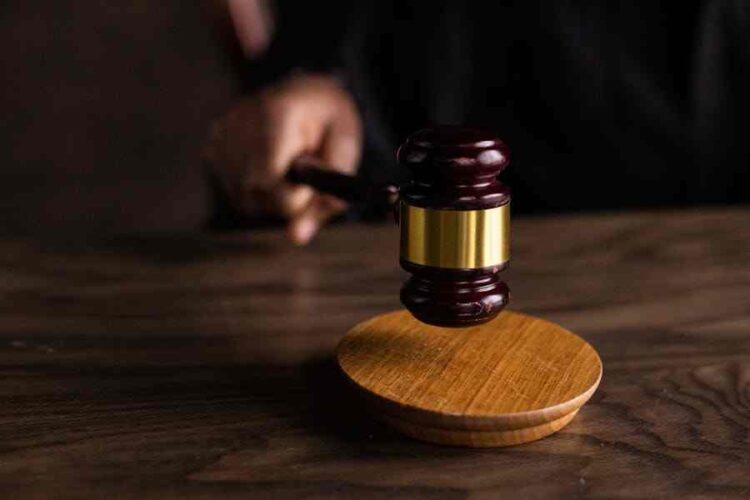As a fan of the Series Suits or the Lincoln Lawyer, you have probably asked yourself at one point what is a deposition in law?
Well, for starters, if you are ever served a court order for a deposition, you must attend it. The opposing counsel attorney will mostly subpoena (a written order asking you to participate in a hearing or deposition) you as a witness.
Witnesses must take the deposition process seriously, whether they are the plaintiff, the defendant, or both who receive a subpoena.
Depositions are a common way of making a ‘discovery’ on ongoing cases as statements are given under oath. So, what is a deposition? Let’s find out.
A Deposition

A deposition allows a civil case to obtain sworn testimony from a witness before the trial. This is a component of the discovery procedure, which collects evidence and facts to assist both parties in defending and presenting their cases at trial.
The deposition process may lead to the disclosure of relevant documents or other evidence that may show up in response to deposition inquiries.
This term is ‘discovery,’’ which may be introduced during a motion for summary judgment or in court.
A deposition accommodates virtually any type of inquiry. However, your attorney may have objections to the record, such as the “relevance” of a par question during interrogation, to preserve them for a future case.
A deposition typically results in better comprehension of the case for both parties involved. It may be a crucial step toward settlement or additional discoveries.
Both parties learn all relevant information and gain an understanding of the opposing side’s position during the discovery phase. This is crucial in formulating an effective legal strategy.
Although key witnesses are mostly subpoenaed for depositions, the plaintiff or defendant may also be involved. Deposition typically occurs in an attorney’s office rather than in a courtroom.
The individual referred to as the deponent provides the assertion and makes the deposition. A deponent who provides false information under oath is subject to civil and criminal penalties.
Depositions Come In Two Types;
- Oral depositions: No court involvement is required as the parties involved take charge of the whole process. The proceedings are then recorded for court use.
- Written depositions: Unlike interrogatories, written depositions do not occur face-to-face. A third party, such as a notary public or process server, delivers the queries that the parties have submitted in advance to the deponent.
A third individual is in attendance to verify that the deponent swears to tell the truth when responding to the inquiries.
The Deposition Process
Depositions are case-specific. Cases involving only legal issues are less likely to require them than those involving factual matters.
Witnesses will not be required to provide testimony regarding legal issues. However, in numerous legal disputes, deposition testimony is crucial for understanding what transpired.
The attorneys may, for instance, need to interrogate pedestrians, passengers, and drivers involved in an accident that occurred at an intersection in the city.
Interview questions could be more general than courtroom queries. For instance;
- The accident: Was the witness at the scene of the accident? Were they capable of observing the proceedings? Could they estimate the speed of the vehicle?
- Accident scene: Are the witnesses familiar with the scene? Do they know the speed limits of the area?
- The background story: Do the witnesses have any criminal records? Do they have any affiliations with the individuals implicated in the case? Do they have any physical limitations, such as impaired vision?
In contrast, depositions are likely unnecessary in data breaches and contract issues as the court will rely on the evidence.
An additional inquiry pertains to the significance of an expert’s statement in the case. The court may occasionally require experts to provide testimony regarding the outcomes of pre-existing reports.
An instance of an expert testifying pertains to a safety report concerning a workplace incident resulting in fatality or injury.
Expert depositions are essential in cases involving professional malpractice, including licensed professionals such as physicians, lawyers, engineers, etc.
The parties depose a fellow expert in the field as a benchmark and compare how the person in question failed to follow the standard procedure. Here’s the whole deposition process procedure;
Oath Taking
Before administering the oath, the court reporter will brief the deponent on the deposition’s regulations. This includes solemnly telling the truth and refraining from interrupting the lawyer conducting the interview.
The deponent should also provide comprehensive responses without guessing and respond exclusively to inquiries that they are confident the answers to.
Additionally, the deponent affirms that they are not intoxicated or under the influence of substances and that they are prepared to participate in the deposition.
Questions
An opposing party’s representative will query the deponent once he has been prepared and sworn in. When the first attorney’s interrogation concludes, the remaining attorneys may cross-examine the witness using a predetermined set of inquiries.
Breaks
In the course of depositions, witnesses frequently request pauses. During these breaks, they may converse with their lawyers, walk around, have lunch, or use the restroom.
Wrap Up
The court reporter will transcribe the testimony and provide both parties with copies of any evidence present during the deposition.
Although both parties access the same information, they frequently employ it differently to support their claims and defenses. Depositions are essential in preparing a case for trial or settlement.
Preparing For Deposition
Be sincere. Although there are times when telling the truth will harm your case, you must do so nonetheless.
Remember that a deposition is a sworn question-and-answer session that could be used against you (and others) in court; it is not a casual conversation. Presenting false information in a court of law may result in perjury charges.
Remember to be composed to establish a favorable rapport with the opposing attorney. The insurance company or client will then evaluate their report and determine whether to pursue litigation or negotiate a settlement.
The opposing counsel may believe that acting defensively or excessively emotionally during cross-examination would elicit the same response from the jury.
Conclusion
Now that we have answered the question of what is a deposition in law, you must always have your lawyer with you.
This is crucial when the legal case is complex and requires a deposition. Attorneys devote years of training to this purpose, and it is their responsibility to assist you in comprehending intricate legal concepts that the average person could not understand.
Although you may not retain legal representation to advocate for you in court, consulting with an attorney for guidance throughout the process is advisable. You have the documentation right, but a lawyer gives an excellent boost to your case.










